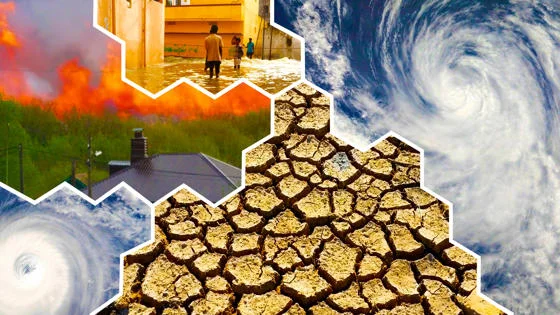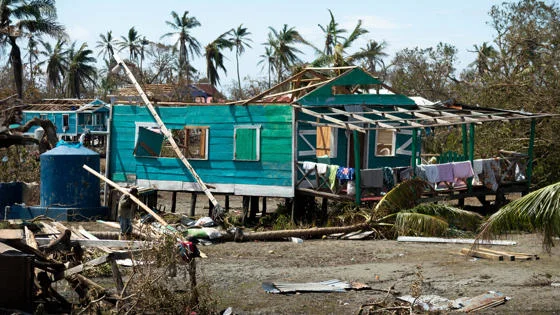Why are climate action cases rising?

Contents
In 2015, a groundbreaking ruling issued by a district court in the Netherlands captured global attention. The case, which called for more ambitious action on climate change, had been filed by environmental non-profit foundation Urgenda against the Dutch government.
The courts upheld their claim and ruled the government had an explicit duty to protect the human rights of the Dutch population against climate change and to reduce emissions. This ruling directly led to more stringent climate policy and a phase out of coal power stations in the country.
Since this landmark judgment, we have seen an explosion of climate action cases across the world. Individuals and non-profit organisations are taking governments and corporations to court for not meeting their climate obligations. And not only that, they’re winning – more than 50 per cent of these cases have seen outcomes favourable to stronger climate action.
Dr Joana Setzer and colleagues at the Grantham Research Institute on Climate Change and the Environment at LSE release an annual report exploring the global trends in climate litigation. The Grantham Research Institute collaborates with The Sabin Center for Climate Change Law at Columbia Law School to identify cases worldwide, and it maintains the most comprehensive global resource on climate policy and legislation – the Climate Change Laws of the World database.
There is a growing sense of frustration that the law and passing legislation are not enough.
An explosion in climate cases
"We have seen a big increase in climate cases in the last ten years or so and there are several interconnected reasons behind why this could be the case," explains Dr Setzer. "Firstly, there has been an increase in awareness of the climate problem – the causes, the consequences and the urgency of acting. The science on this is very robust and we have a better understanding of the problems as a society. This helps provide the evidence needed for litigation."
She continues: "Secondly, there is a growing sense of frustration that the law and passing legislation are not enough. Seeing heads of state go to international conferences and shake hands over new agreements is promising but not good enough. Often these promises don’t translate into action."
Litigation is helpful for setting legal precedents and establishing frameworks for similar issues in the future. It can also help enforce rights that might exist on paper but not in reality.
For example, we are currently awaiting judgment from the European Court of Human Rights on a group of three climate cases. One of these cases was brought by six young people from Portugal against 33 European countries. They claim their right to life has been violated by the inaction of these states and their failure to reduce emissions to meet the Paris Agreement target of limiting global warming to 1.5 degrees Celsius.
In this case, the young people are calling for more stringent cuts on emissions, but in other cases claimants ask for compensation for harms incurred or a mixture of both future commitments and remuneration.
The government is being sued from both sides and these cases can cost billions.
Greenwashing and reputational damage
However, litigation is not just something which can be used as a last resort, it can also be used as part of a wider campaign to raise awareness and start conversations round climate issues. "It’s not just about the case itself but about creating momentum and bringing people together," says Dr Setzer.
Even decisions unfavourable to climate action can create changes in behaviour. Corporations have their public image and share prices to consider. Dr Setzer and colleagues at the Grantham Research Institute already found that fossil fuel companies register a drop in value after litigation or unfavourable judgments in climate lawsuits. The fact that cases are being filed has already resulted in corporations taking this into consideration as a risk factor and changing their behaviour accordingly.
And it’s not just governments and fossil fuel companies that have to be careful. Brands that we perceive as more friendly to the environment are also being taken to court for "greenwashing" and making climate claims they can’t substantiate. Take the oat milk company Oatly, for example, whose adverts were banned in 2022 by the Advertising Standards Authority over misleading environmental claims.
Backlash cases
However, what works one way also works another, and we are seeing a rise in "backlash" cases with corporations using litigation against climate regulations or NGOs. For example, Shell recently filed a lawsuit against Greenpeace for $2.1million in damages after its campaigners boarded an oil platform last year.
We have also seen a rise in anti-ESG (environmental, social and governance) cases in the US where companies are trying to stop legislation that promotes ESG policy or incorporates it into financial services. "It’s a risk that makes the game uglier," warns Dr Setzer. "You have litigation coming from all directions, and those with less power and resources are likely to struggle more to pay for legal fees and costs."
We are seeing also an uptick in arbitration cases with fossil fuel companies taking governments to court for limiting their rights to operate. After the groundbreaking Urgenda case outlined above which called for the Dutch government to phase out coal, two coal companies then filed an arbitration case against the government for taking away their authority to operate.
"The government is being sued from both sides and these cases can cost billions," explains Dr Setzer. The two companies in this example have now withdrawn from arbitration but these cases are a perfect example of similar action that could be taken in the future.
With climate becoming an ever more prominent issue and with frustrations growing at a lack of action by both states and corporations, climate cases look set to increase even further, especially with the rise of far-right governments around the world.
Going forwards, Dr Setzer and colleagues will continue to track and report on climate litigation alongside undertaking new work to understand the impact of these interventions on changing policies and behaviours and how science can inform and support further litigation.
Dr Joana Setzer was speaking to Charlotte Kelloway, Media Relations Manager at LSE.
Download a PDF version of this article




